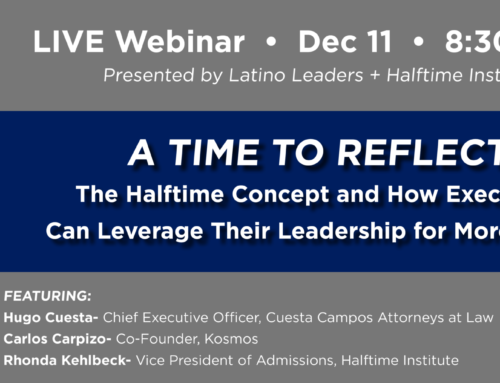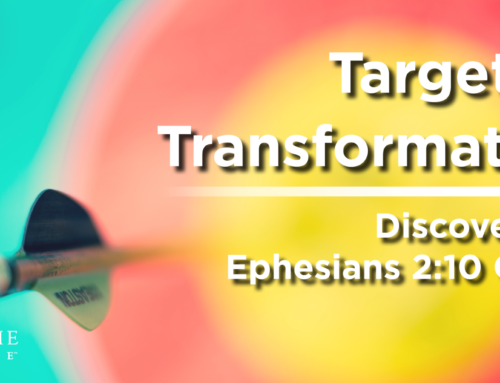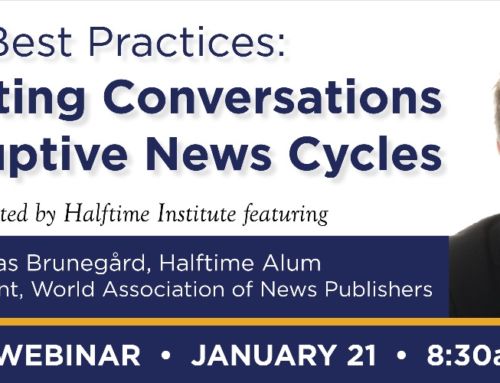By Bob and Susan Karcher, Authors, Who Are the Joneses Anyway?
“It’s in Christ that we find out who we are and what we are living for.” Ephesians 1:11 (MSG)
Is it possible to have too much of a good thing? The answer to this has less to do with the amount of what we have and more to do with why we have it and what we do with it.
We are familiar with the idea that too much of a good thing can become a bad thing. Think of sunshine. We aren’t medical doctors, but most of us know that sunshine has many benefits for the human body, including vitamin D production. On the other hand, too much exposure to direct sunlight, for some people, may lead to significant health issues—not to mention good old-fashioned sunburns!
Surely too much of a good thing can backfire on us. But here’s an area where you might not have considered this to be true: money.
The Love of Money
Money is a good thing, even a great thing—if used correctly. We need money to conduct commerce, provide for ourselves and our families, and help others in our communities in times of need. But can too much money turn into a bad thing?
The answer here, as with sunlight, is that too much money can become a bad thing for some people and in some situations. It has a great deal to do with how we attained it and what we do with it. But can too much money bring about our own destruction? Having money is not the issue. The problem is focusing too much on money or mishandling it.
The Bible is full of references to the ills money brings if we aren’t careful. First Timothy 6:9–10 puts it this way: “But if it is only money these leaders are after, they’ll self-destruct in no time. Lust for money brings trouble and nothing but trouble. Going down that path, some lose their footing in the faith completely and live to regret it bitterly ever after.” (MSG)
 A good example of this is individuals who win the lottery. The Powerball lottery prize in the United States recently ran up to nearly $1.6 billion. Yes, that’s billion—with a “B”. Lottery players across the country scrambled to get their own numbers and dream about what they would do should they become rich. Yet, many lottery winners over the years don’t end up so “lucky” in time.
A good example of this is individuals who win the lottery. The Powerball lottery prize in the United States recently ran up to nearly $1.6 billion. Yes, that’s billion—with a “B”. Lottery players across the country scrambled to get their own numbers and dream about what they would do should they become rich. Yet, many lottery winners over the years don’t end up so “lucky” in time.
In an article in Forbes magazine, author Susan Adams explores cautionary tales of lottery winners who have gone bankrupt. She writes, “Sudden wealth is most likely to exaggerate your current situation, but it won’t fundamentally change your sense of well-being. If you’re unhappy, you’re not good at managing money and you’re surrounded by people you don’t trust, a big win will probably make your problems worse.”[i] According to one source Adams cites, 44 percent of lottery winners have spent all their winnings after only five years; another she uses indicates that lottery winners are twice as likely as average people to declare bankruptcy.
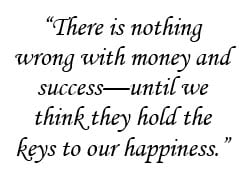 Money, in and of itself, isn’t the problem—it’s when it becomes our preoccupation. It’s when we move it from its place as a tool and make it our focus—our god. Instead of using money to simply conduct commerce and provide for ourselves, it often becomes the means by which we find ourselves “keeping up with the Joneses.”
Money, in and of itself, isn’t the problem—it’s when it becomes our preoccupation. It’s when we move it from its place as a tool and make it our focus—our god. Instead of using money to simply conduct commerce and provide for ourselves, it often becomes the means by which we find ourselves “keeping up with the Joneses.”
The temptation to use money to keep up with the Joneses can start at an early age. Even worse, we can easily pass unhealthy views about money on to our children. What other conclusion are they to make when we put our jobs and acquisition of wealth ahead of them? What else would they learn other than what they see their parents doing?
We think we’re providing a better home, the best toys, and the latest electronic gadgets. We’ll work long hours and make painful sacrifices, thinking it’s for the best. But our children really don’t want all the stuff; they want us—our presence. Instead, through our actions and our words, we might inadvertently pass down a legacy of keeping up with the Joneses to our children.
Joneses by Proxy
The pressure to work hard and provide everything we want our children to have can even start with preschool. Families that spend large amounts to get their children into exclusive preschools can start the race for parents—and their children—earlier than ever before.
While some embrace the race, others don’t feel they have what it takes to put their kids through a high-stakes process that weeds three-year-olds out of programs in which acceptance can be based more on who the parents are and how much money they have than the attributes of the child being considered for acceptance.
What parents don’t feel the pressure to be perceived as loving, supportive parents? We all want our kids to have more than we had—but we also want them to be who they are supposed to be, don’t we?
It’s time to ask, “Are the very things we are doing and providing actually setting our children up for something other than happiness and success?”
If we don’t provide our kids with all the things we feel we must, will their self-esteem be permanently damaged? Will they constantly be searching to have nicer things later in 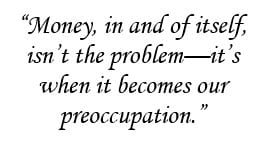 life because they didn’t get enough as children? Could all the extravagant birthday parties, expensive toys, and designer diapers we provide really be about living out our own keeping up with the Joneses lifestyle vicariously through our children—a kind of Joneses by proxy?
life because they didn’t get enough as children? Could all the extravagant birthday parties, expensive toys, and designer diapers we provide really be about living out our own keeping up with the Joneses lifestyle vicariously through our children—a kind of Joneses by proxy?
Racing through life seeking contentment by buying and achieving our way to the top won’t get us there. There is nothing wrong with money and success—until we think they hold the keys to our happiness.
Our culture has bought into the lie that with money and success we can find happiness. It won’t work—it never does! Neither true happiness nor lasting contentment will ever be found through money or success.
How much is enough? When does enough become too much? Life is not a race to the finish; it’s about running your own race and finishing well.
_________________________________________________________________________________
Bob is a Certified Halftime Coach. Reading the book Halftime and attending the Halftime Institute were foundation-setting opportunities the Lord used to move Bob into the work he now does as an author, speaker, and life coach.
Bob, and his wife, Susan, co-authored Who Are the Joneses Anyway?, a popular book focused on helping others discover who they are and why they are here so they can lead the intentional, authentic lives they were created for. Click here to learn more about the work they do or to view the book trailer video.
[i] Susan Adams, “Why Winning Powerball Won’t Make You Happy,” Forbes, November 28, 2012, http://www.forbes.com/sites/susanadams/2012/11/28/why-winning-powerball-wont-make-you-happy/.


